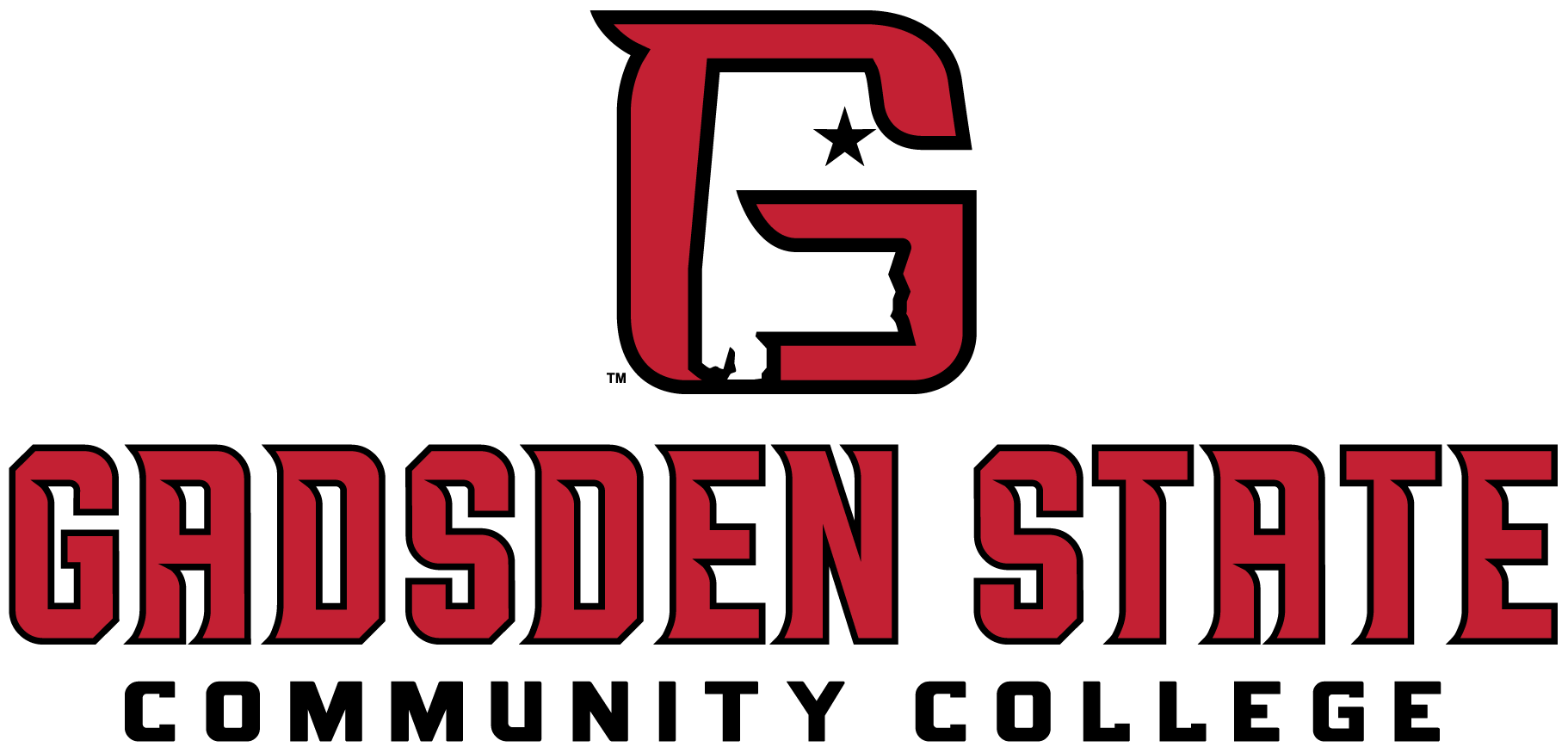The Medical Assistant Program is designed to prepare competent entry-level graduates for employment as skilled professionals. Program instruction includes cognitive, psychomotor and affective learning domains. Successful competition of the program allows students to sit for the national certification exam. This certification leads students to employment opportunities in physicians’ offices, outpatient clinics, laboratories, ambulatory institutions, hospitals, nursing homes, minute clinics and urgent care facilities.
The Medical Assistant Program’s mission is to empower each student through knowledge and skill mastery in the profession of medical assisting. Medical assistants are the heart, soul and compassion of the community through providing service to patients, physicians and colleagues. Using positive reinforcement within the classroom and laboratories, Gadsden State’s Medical Assistant students will define professionalism through acquaintance.

A new class will be admitted to the Medical Assisting Program each Fall Semester. Student selection is based on completion of all requirements: ACT scores, GPA and grades received in required general education courses. Admission to the program is competitive, and the number of students accepted is limited by the number of faculty and clinical space available. Meeting the minimum requirements does not guarantee acceptance.
- Unconditional admission to the college. Apply for admissions here.
- Submit online program application by midnight August 19 of the year of admission.
- Submit supporting documents to the Admissions Office by the deadline.
- All official high school and college transcripts or official GED scores
- Official ACT scores (with a minimum composite score of 18 on the national or residual on-campus test)
- The Medical Assistant Program will accept an ACT Superscore if it is sent directly from ACT to Gadsden State Community College as your score recipient. Keep in mind the following: ACT does not include ACT Residual On-Campus testing in determining the Superscore. You must contact ACT and request (there is an associated fee) the Superscore be sent to Gadsden State. We will NOT calculate the Superscore. The Superscore must be the official score calculated and sent by ACT. The Superscore must be received by the application deadline. If you plan to use a Superscore you must send your full name, date of birth, A# and date Superscore was requested from ACT to Diane Ledbetter at dledbetter@gadsdenstate.edu. We will need this information to verify receipt of the score.
- Must be 18 years old
- A minimum of 2.5 overall GPA at Gadsden State for all college courses taken. If no courses have been completed at Gadsden State, GPA from high school or from college institution from which student is transferring may be used.
- Minimum of 2.5 GPA for required Medical Assistant general education courses
- Must be eligible for placement into the following courses:
- English 101
- Math 116
- Must be in good standing with the College
- Must meet the Essential Functions required for Medical Assistant students.
- Pass a criminal background check* and drug test upon admission to the program. Students are also subject to random and “for-cause” drug testing during the length of the program.
- Submit a completed health questionnaire and immunization records upon request by the program.
- Demonstrate proof of insurance. Students who do not show proof of insurance will not be allowed to attend clinicals.
Review the Medical Assistant Ranking Sheet.
The student entering and participating in the Medical Assistant Program must be able to:
- stand for prolonged periods
- work in a limited space
- perform under pressure in a stressful or emergency situation
- be oriented to reality and not be mentally impaired by mind-altering substances
- hear high and low-frequency sounds within normal range with or without corrective devices
- possess the visual acuity to read, write, and assess the patient and the environment with or without corrective lens
- position and transfer patients with assistance as needed during surgical procedures
- read, comprehend and write legibly in the English language
- send, receive and respond appropriately to verbal messages
- possess manual dexterity and tactile ability
- smell body and environmental odors
- correctly perform simple mathematical computations
- possess organizational skills
- lift and transport 25 pounds
Any student who has had a medical event (accident, surgery, bedrest, hospitalization, birth, etc.) that would prevent them from meeting the essential functions required for the program must provide a medical release from the physician stating that the student can meet the essential functions before returning to the clinical area.
The National Board for Medical Assisting of the American Association of Medical Assistants retains the sole authority to establish eligibility requirements and make all final decisions regarding eligibility. AAMA Disciplinary Standards state that if a person is found guilty of a felony or has plead guilty to a felony, the individual will be ineligible to sit for the certification examination. The certifying board may grant a waiver based upon mitigating circumstances. After successful completion of the AAMA exam, the individual will be a Certified Medical Assistant CMA (AAMA).
Before testing, individuals must first establish eligibility by submitting the appropriate examination application form along with the correct fees. AAMA does not refund processing fees for ineligible candidates.
AAMA accepts all properly completed applications from qualified applicants regardless of the applicant’s age, sex, race, religion, marital status, disability or national origin.
Upon acceptance into the Medical Assistant Program, students must have a background check and undergo a drug screen at the student’s expense. Students must also have a physical (form provided), submit an immunization record and maintain health insurance while enrolled in the program. At the New Student Orientation, the program will provide information concerning how and when these will be performed.
A variety of clinical affiliates are used within the surrounding six counties. The program makes every effort to avoid excessive driving distances but cannot guarantee a specific clinical assignment. Students should expect to travel and must have reliable transportation during the last three semesters of the program.
Clinical assignments will occur between 7:30 a.m. and 3:30 p.m., Monday through Friday. Students will not be assigned to a clinical site during holidays observed by Gadsden State or during semester breaks of Gadsden State in which the College is formally closed. Students will not be assigned to clinical assignments in which immediate relatives (spouses, siblings, parents and children) are employed. If a student has relatives employed in other departments of the clinical affiliate, the assignment will be at the discretion of the program faculty.
The college-wide grading policy which is in place for all general education courses is located in the College Catalog.
The Medical Assistant Program uses the following grading scale for all programmatic courses:
|
Percentage Grade |
Letter Grade |
|---|---|
|
90-100 |
A |
|
80-89 |
B |
|
75-79 |
C |
|
70-74 |
D |
|
Below 70 |
F |
These expenses are in addition to tuition and fees.
|
Items |
Cost |
|---|---|
|
Compliance Tracking |
$98 (background check, initial drug screen and health information tracking); $68 for secondary background check and drug screen |
|
Drug Screen |
$37 (2nd fall semester, random, "for cause") |
|
Physical and Lab Testing |
$200 |
|
Textbooks |
$800 (entire program) |
| Lab fee | $25 |
|
Medical Liability Insurance |
$32 |
|
Uniforms |
$200 |
|
Application fee for Degree |
$10 |
|
Application fee to apply for Medical Assistant examination |
$225 |
|
Total |
$1,668 |
All fees are approximations and subject to change.
Mission
The Medical Assistant Program will empower each student through knowledge and skill mastery in the profession of medical assisting. Medical assistants are the heart, soul and compassion of the community through providing service to patients, physicians and colleagues. Using positive reinforcement within the classroom and laboratories, Gadsden State students will define professionalism through acquaintance.
Program Goals and Student Learning Outcomes
- Students will competently perform medical assistant procedures.
- Students will communicate effectively.
- Students will use critical thinking skills.
- Students will demonstrate professionalism.
The Medical Assistant Program is a five-semester program that enables successful graduates to take the national certification examination offered by the American Association of Medical Assistants (AAMA). The program culminates in an Associate of Applied Science in Allied Health.
No, courses are only offered at the Wallace Drive Campus in Gadsden. The general education courses required for the program may be taken at most campuses and/or online.
You must apply by the deadline date and be accepted to the program. The deadline date is June 1 of each year. Once accepted, a student starts in the fall of that same year.
Complete the online application found under the Apply to the Medical Assistant Program tab above.
The program accepts 20 students to start each fall. The number is limited due to clinical space availability.
No. Admission is competitive. All applicants are rank-ordered according to their test scores and grades. Those applicants with the highest scores will be on the top of the list.
Visit ACT.org to register for the ACT Test.
Yes. A minimum ACT composite score of 18 is required to be eligible for the Medical Assistant Program. Keep in mind the higher the score the better the chance of acceptance.
ACT places a testing limit of 12 attempts
Medical Assistant courses are not offered online.
Medical Assistant classes are taught primarily during the day. Some labs may be in the late afternoon. Clinical rotations may include evening hours.
No, the Medical Assistant Program is offered on a full-time basis only. If all general education courses are completed prior to admission to the program, full-time status could fall below the standard 12 hours considered as full-time enrollment.
The Medical Assistant program does not have any “true” prerequisites. All applicants must be eligible for MTH 116, ENG 101 and BIO 201 in the fall semester of entrance into the program. Students are encouraged to complete as many general education courses as possible prior to being admitted into the program. This lessens the intensity of each semester and allows students additional time to focus on their Medical Assistant coursework.
Most courses from Area II of the Alabama General Studies Curriculum (AGSC) can be used to satisfy the humanities elective requirement. Some of the courses taught at Gadsden State that can be used for the elective are as follows:
- ART 100: Art Appreciation
- MUS 101: Music Appreciation
- THR 120: Theater Appreciation
- PHL 206: Ethics in Society
- HUM 101: Introduction to Humanities
- REL 151: Survey of Old Testament
- REL 152: Survey of New Testament.
Please note there are additional courses that may satisfy this requirement, depending on individual interest and schedule; however, the course must be at least three credit hours.
No. You must be eligible for MTH 116, ENG 101 and BIO 201 in the fall semester of entrance into the program. It is recommended that you have as many general education courses completed as possible, but this is not required. This will lighten the coursework and improve your chances of being selected.
Yes. You will need to submit official high school and college (if applicable) transcripts and ACT scores to the Admissions and Records Office by the June 1 deadline. In addition, all applicants will receive notification regarding an Applicant Information Session. Attendance at this session is mandatory. If an applicant does not attend this session his/her application will not be reviewed.
The Applicant Information Session is a mandatory session at which all aspects of the program are discussed with the applicants. Program faculty, surgical/operating room managers, clinical instructors, and currently-enrolled students provide insight into the program for those in attendance. Attendance at this session is mandatory. If an applicant does not attend this session, his/her application will not be reviewed. Details concerning this session are included in the confirmation letter sent upon completion of the online application.
No, the application is only submitted online.
Yes. Hand delivered transcripts must be sealed, stamped "OFFICIAL" and delivered to the Admissions and Records Office in the One Stop Center on the East Broad Campus in Gadsden. If the transcripts are opened, or appear tampered with, they will not be accepted.
The Medical Assistant Program does not have a “Waiting List.” Students must apply for the program each year. The top students are admitted, and a limited number of students are placed on an alternate list should an opening be available before the program begins.
You will be notified by your GSCC email. You will receive an email of standing approximately four weeks after deadline date. You will receive one of three letters: acceptance, alternate or not accepted. The letter is sent to your Gadsden State email. Personal email addresses will not be used to notify students of information related to GSCC.
No. The Essential Functions form is signed by the student as recognition of the physical and mental requirements of the program once he/she is accepted. It is not part of the application process. All applicants should review this form prior to applying
Your health records will need to be turned in AFTER admission to the program. Instructions will accompany your acceptance letter.
The clinical affiliates have certain requirements to guarantee the health and safety of their patients. Students are required to meet those stipulations so that they can attend the clinical settings for their education. These requirements will be necessary for anyone in the healthcare field while in school and later during employment.
Start Here:
Step 1 – Review the Application Information below before continuing with the application process. You must have a Gadsden State student A-number and access to your student portal to fill out the application. If you have issues, please contact the Help Desk.
Step 2 – Apply to the Medical Assistant Program at the Wallace Drive location. After logging into your student account, you will be directed to the program application.
Step 3 – Read Page 1 of the application thoroughly. Complete Pages 2 and 3 and upload any required documentation. Sign the application on Page 4 and submit. No changes or additions can be made to your application after you submit. No paper applications will be accepted.
Step 4 – Verify that you received a submission confirmation email to your GSCC student email account. Save the email in the event it should be needed.
IMPORTANT: If you need to save your application and complete it at a later date, click “Save Progress” at the bottom of the application screen. When you are ready to complete the application, log in to your myGadsdenState account and click the NextGen link in your Launch Pad. View your Pending/Draft forms to resume the saved application.
Medical Assisting programs vary considerably from institution to institution. Students seeking to transfer into the Gadsden State Medical Assistant Program from another program must meet the following requirements:
- Unconditional admission to the College with clear academic status.
- Ability to meet and comply with standards and policies in the current College Catalog and Student Handbook.
- Completion of requirements of initial admission (application, background check, drug screen, health records, etc.).
- Minimum grade point average of 2.5 for the required general education courses.
- No longer than 33 months elapsed from the initial admission term at the institution from which transferring to date of graduation.
- Official transcripts verifying a minimum grade of “C” earned in courses which represent collegiate coursework relevant to the degree with course content and level of instruction resulting in student competencies at least equivalent for those matriculating students. Alabama Community College System Standardized Medical Assistant Curriculum courses will be transferred without review of the course syllabus. Verification of knowledge and/or skills may be required.
- Eligibility to return to previous Medical Assistant Program in good standing.
- No more than one semester in which a grade of “D” or “F” has been earned in the medical assistant course.
- Clinical space availability.
- Completion of 25% of total required hours for the A.A.S. Degree in Medical Assistant at institution conferring degree.

